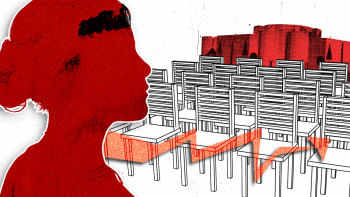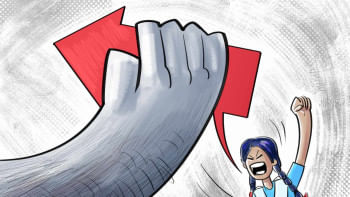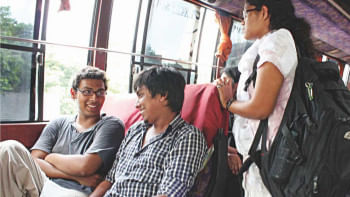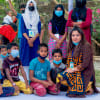Neglecting women's participation in politics perpetuates their oppression

March 8, 1857 witnessed the uprising of female needle factory workers in New York City, who marched in defiance of perilous working conditions, meagre pay, and gruelling 12-hour shifts. This demonstration resonated across the Atlantic, reaching Europe with its message of solidarity. Building upon the momentum of the 1857 movement, by 1860, female needle factory workers succeeded in securing the legal authorisation to establish a union. Fast forward to March 8, 1908, when thousands of women employed in the garment and textile sectors of New York City renewed the call for equitable pay and a standard eight-hour workday by mobilising on the streets once more.
In 1909, following the precedent set by their predecessors, 30,000 US women workers initiated a 13-week strike advocating for similar demands. The following year, in 1910, the First International Conference of Socialist Women convened in Copenhagen, Denmark. During the second assembly of this conference, Clara Zetkin, a prominent figure in the German Social Democratic Party, presented a proposal. She suggested the establishment of an annual gathering specifically for working women, providing them with a platform to convene and share perspectives on a designated day each year.
Clara Zetkin's proposal led to the adoption of March 8 as Women's Day. However, it wasn't until 1974, 117 years later, that the United Nations officially recognised March 8 as International Women's Day. Today, we commemorate the protest of women workers in New York City on March 8, 1857 as International Women's Day.
A review of the history reveals that International Women's Day has its roots in significant political struggles. Yet, in contemporary times, the focus has shifted away from this core theme. Instead, the discourse surrounding Women's Day struggles has been overshadowed by corporate advertising and the influence of neoliberal economic principles, endorsed by the state, which have downplayed the historical significance of women's struggles. Moreover, discussions on women's political empowerment are conspicuously absent from public discourse. We must bring this issue to the forefront, both internationally and within Bangladesh, to foster meaningful dialogue and action towards women's political empowerment.
Although women have held prominent positions in Bangladeshi politics for a considerable period, when discussions arise about women's empowerment, it's common for some to point out that women occupy key roles such as that of the speaker of the national parliament, top leadership positions within the ruling party, the current loyal opposition party, and the former opposition party. This assertion often leads to a sense of satisfaction regarding the state of women's empowerment among many people.
The question is: what is the position of women in the current politics of Bangladesh? In 2008, the Election Commission (EC) introduced changes to the law to promote greater female participation in politics. Specifically, amendments were made to the Representation of the People Order (RPO) stipulating that political parties must ensure a minimum of 33 percent women's participation at all levels of committee by 2020. This initiative reflects a commitment to fostering gender diversity and inclusivity within the realm of Bangladeshi politics. However, it appears that no political party—rightist, leftist, or otherwise—in Bangladesh has met this requirement, despite the mandate being established 16 years ago. Even within the central committee of the Communist Party of Bangladesh, the current rate of women's participation stands at 27.91 percent, indicating a shortfall. Moreover, when considering the composition of district committees nationwide, the percentage of female representation is even lower.
This discrepancy underscores the ongoing challenge of achieving gender parity and inclusivity within the political sphere of Bangladesh. Women in Bangladesh face significant barriers, both familial and societal, which hinder their participation in politics. Consequently, their involvement in political or social movements remains limited. Even when women are politically engaged, they often encounter obstacles in attaining influential positions within the decision-making process. It's important to recognise that merely having women in prominent government roles does not guarantee genuine empowerment. Addressing these challenges requires revolutionary changes aimed at dismantling entrenched gender biases and promoting equitable opportunities for women in all spheres of society.
In Bangladesh, women face unequal access to essential resources such as land, credit systems, agricultural inputs, and markets. Even though a majority of women in the country are actively involved in agriculture, their contributions often go unnoticed and unrecognised by the state, society, and even within their own families. The practice of reducing women's contributions to mere "housework" has become commonplace. Unfortunately, the GDP fails to account for the value of domestic work or women's labour in agriculture. Furthermore, our laws, policies, and social norms do not adequately support women's property ownership rights. Achieving political empowerment for women and ensuring their equal participation in policymaking are crucial steps towards addressing these glaring gaps.
It's undeniable that true emancipation for women isn't achieved by politically disempowering them, depriving them of their rights, or simply portraying idealised images of them on product packaging. Neglecting women's participation in politics only perpetuates their oppression. Despite women holding significant roles in government, violence against women persists. Regardless of their location—be it within the family, workplace, or nation—women continue to face patriarchal aggression, highlighting the ongoing need for systemic change.
Advancing the fight for women's emancipation will undoubtedly encounter obstacles. Within the realm of politics, reactionary forces likeHefazat-e-Islam may push for measures such as the imposition of 13 points of custody, the annulment of women's policies, or resistance against the implementation of 33 percent representation of women in political party committees. Under the state's patronage, women often remain portrayed as subordinate. This is evident through the prevalence of derogatory remarks towards women, whether uttered in religious sermons or circulated online, reflecting a broader societal trend of disrespect towards women.
To alter this entrenched paradigm, the issue of women's liberation must be firmly placed on the state's agenda. It's crucial to recognise that even with women holding positions of power within the state, patriarchy still influences its character. Transforming the patriarchal mindset of the state necessitates sustained political activism. Therefore, empowering women economically and politically, while establishing non-discriminatory structures, is imperative for effecting change. The global struggle for women's rights symbolises a battlefield, and on this International Women's Day, we extend our gratitude to all those engaged in the fight for women's emancipation.
Lucky Akter is central committee member in Communist Party of Bangladesh.
Views expressed in this article are the author's own.
Follow The Daily Star Opinion on Facebook for the latest opinions, commentaries and analyses by experts and professionals. To contribute your article or letter to The Daily Star Opinion, see our guidelines for submission.

 For all latest news, follow The Daily Star's Google News channel.
For all latest news, follow The Daily Star's Google News channel. 











Comments